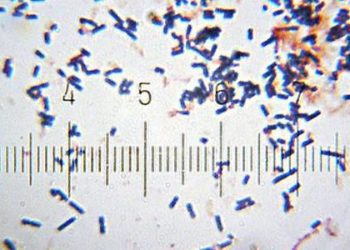More data needed to determine safety of probiotics and prebiotics
1. Studies are often lacking or inadequate with respect to reporting adverse events (AEs) related to probiotics and prebiotics.
2. The majority of the studies in the trial did not give a specified definition for AEs or serious adverse events (SAEs).
Evidence Rating Level: 1 (Excellent)
Study Rundown: Prebiotics and probiotics are both currently used widely in different food products and other aspects of our daily lives. The authors of this study aimed to describe the incidence and severity of AEs related to probiotics, prebiotics, and synbiotics. Generally, they found that an increased amount of data is required to accurately assess safety of probiotics and prebiotics. This study had several limitations. Of note, only English-language studies were included in the criteria for study selection, which may have contributed to less data in the analysis or bias related to the language restriction. Further, it was noted that trials might have been insufficiently powered to adequately detect adverse events (AEs). Overall, the study indicates that greater data collection and results are necessary for appropriate assessment of probiotic and prebiotic safety.
Click to read the study in Annals of Internal Medicine
Relevant Reading: Probiotics, their health benefits and applications for developing healthier foods: a review
In-Depth [systematic review]: The authors of this study conducted a systematic review to assess reporting of safety of probiotics, prebiotics, and synbiotics in publications of randomized controlled trials. A total of 384 trials were included in the study. Four reviewers independently evaluated the study characteristics and conducted data extraction. The authors found that out of all of the trials included in the study, 98% of them did not specifically define AEs or SAEs in the RCTs. Further, the majority of the studies evaluated safety of probiotics (n = 265, 69%), compared to prebiotics or synbiotics. The authors found that study reporting was frequently inadequate among RCTs, with 37% of the RCTs only using generic statements to report on AEs and SAEs.
Image: CC/Wiki
©2018 2 Minute Medicine, Inc. All rights reserved. No works may be reproduced without expressed written consent from 2 Minute Medicine, Inc. Inquire about licensing here. No article should be construed as medical advice and is not intended as such by the authors or by 2 Minute Medicine, Inc.







